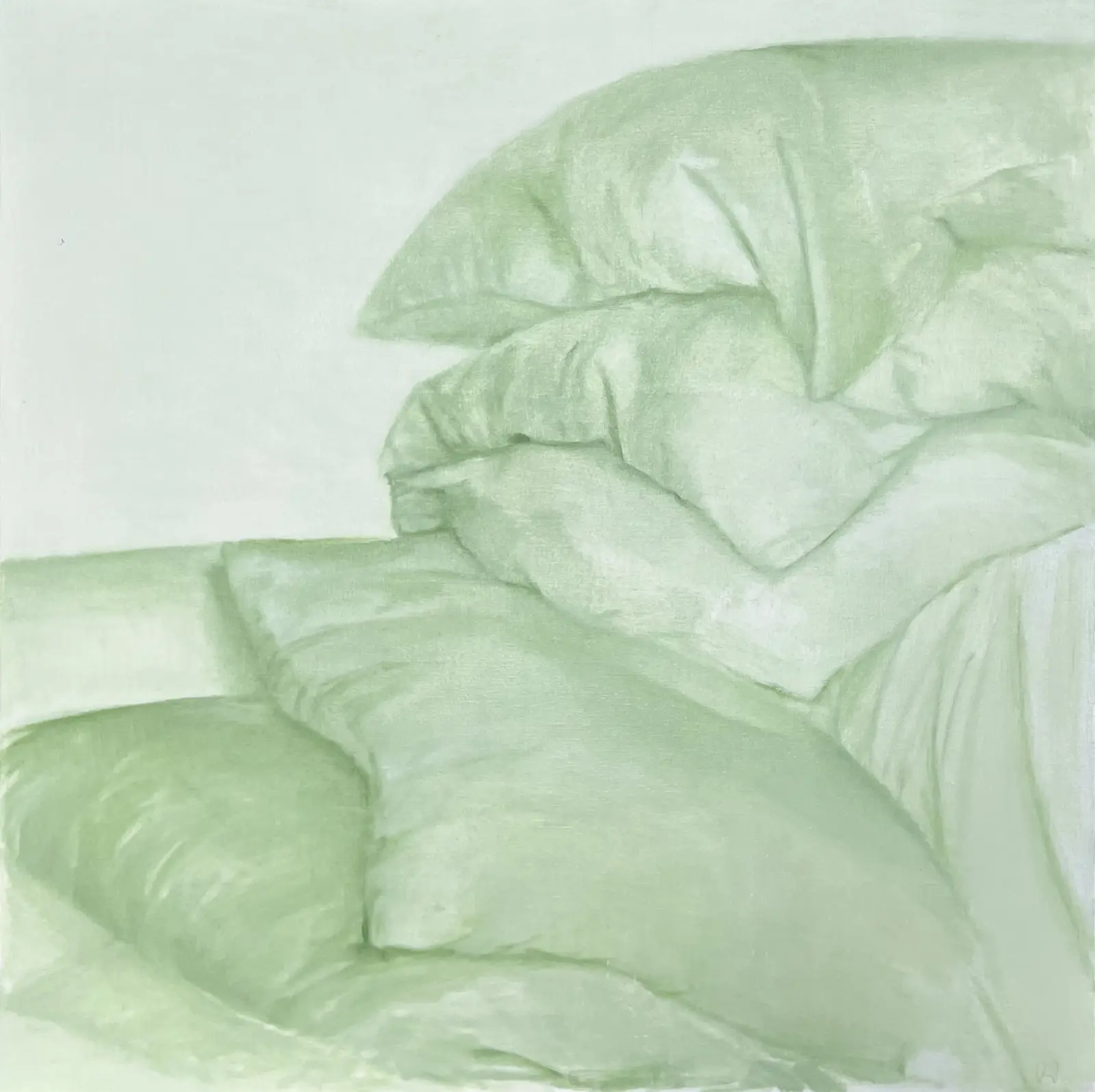
Through the works of Ayan Aziz-Mammadova, Anar Huseynzada, Niyaz Najafov, Regina Rzaeva, and Zohrab Salam-zadeh, Perceptual Shifts presents painting as a generative and self-sustaining visual language that reflects the fluid complexity of contemporary vision. Drawing from everyday symbolics and imagery, the artists create autonomous ecosystems where forms transcend their origins, and perception becomes an evolving process.
Each composition on view navigates terrain shaped by fragmentation, recomposition, and the interaction between material presence and metaphorical resonance. Everyday objects, eastern ornaments, interiors, portraits, and floral motifs lose their decorative function, acquiring symbolic weight within a dynamic painterly logic. Across the exhibition, where boundaries between figuration and abstraction blur, the canvas transforms into a mutable field where dense, tactile surfaces meet refined, minimalist imagery.
A key focus of the exhibition is the exploration of personal and collective memory through distinct formal approaches. Regina Rzaeva’s meditative portraits and still lifes, including ‘Spring’ (2024) and ‘White Flowers’ (2025), engage with themes of self-awareness and transience. Built through subtle transitions of tone and soft gradations of color, these works invite reflection on the fragile interplay of ephemeral states. In ‘Pillows’ (2024), the transformation of a domestic object speaks to a poetics of fleeting time.
Similarly navigating themes of transformation, Ayan Aziz-Mammadova examines the space of identity and female experience through abstraction. In works such as ‘Mystery of Nature’ (2022), she draws from organic textures and the early tones of spring to channel personal experiences of renewal and awakening. Merging soft tones, and natural forms, the artist’s tactile manipulations of acrylics and pastels express a continual search for selfhood and emotional resilience.
Anar Huseynzada’s paintings, including ‘Thankfulness’ (2018) and ‘Eclipse’ (2017), delve into the discoveries on human nature and its revelations. Engaging with the rugged terrains of Absheron, his dynamic brushwork and textured chromatic surfaces spotlight the forces of life, fate, and mortality. His deep connection to the Caspian steppe is a central motif, with the landscape serving as both muse and metaphor for life in its stark, elemental, and ancient form.
Zohrab Salam-zadeh’s recent works push the boundaries of his visual storytelling through the incorporation of theatrical scenography. In ‘Guests of a Red Café’ (2024), a large-scale mixed-media canvas, he uses the framework of stage design as a compositional implement, treating the canvas as a constructed scene. By limiting the central culmination and imposing a spatial perspective onto the image, Salam-zadeh shifts the viewer’s perspective. Influenced by the illustrative traditions of Asian art, and their adaptations, Salam-zadeh reflects on how migration alters not only physical space, but also the aesthetic and symbolic landscapes.
Niyaz Najafov’s ‘Flowers’ series reduces the elements of form and feeling to a distilled language of lines and spatial geometry. For Najafov, line is a gesture of expression that maps the ways of his communication. His recurring motif – the vase – is often distorted, anthropomorphized, and rendered with a masculine presence. In contrast, the flowers, delicate and transparent, refer to the feminine. Their intimate coexistence within the frame suggests a visual metaphor for relational harmony and the essential interdependence of dual forces. His works explore the tension between structure and emotion, creating compositions that function as silent conversations between presence and absence.
*Perceptual Shifts* explores the medium of painting through diverse approaches artists bring to it today, positioning it as an active and responsive field where imagery transforms, fragments, and reshapes in response to the shifting nature of contemporary perception.